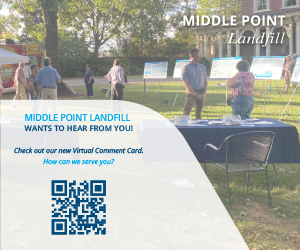Murfreesboro, TN - As the holiday season approaches, many people experience a shift in mood and energy, with some individuals struggling more than others. For those affected by Seasonal Affective Disorder (SAD), the shorter days of winter can bring sadness, fatigue, and isolation, often coinciding with the busy pace of holiday celebrations.
Seasonal Affective Disorder is a type of depression that typically occurs during the fall and winter months when daylight hours are shorter. "Symptoms can include irritability, anxiety, crying spells, hopelessness, feelings of worthlessness, mood swings, sleep irregularities, changes in appetite, a depressed mood, and even suicidal thoughts," said Dr. Joseph Sharpe, chief medical officer and psychiatrist at Ascension Saint Thomas Behavioral Health Hospital.
An estimated 5% of the U.S. population is affected by SAD. While the condition can occur year-round, it is most commonly associated with winter, making it more challenging to manage during the holidays when social expectations run high.
"This is primarily related to patterns of less direct sunlight, shorter daylight hours, and long stretches of gray, overcast days that can last for weeks," Dr. Sharpe said. "If patients notice an increase in symptoms, they should contact their primary care provider and seek medical advice. There are various treatment options, including talk therapy, medication, light therapy, and, in severe cases, hospitalization."
The Holiday Strain and SAD
The holidays can intensify the symptoms of SAD in several ways. The stress of holiday planning, family gatherings, financial strain, and cold weather can exacerbate feelings of depression and anxiety, particularly for those already vulnerable to the condition. For some, the holidays may also bring up feelings of loss or loneliness, adding emotional weight to the season.
Expert Advice: Coping with SAD During the Holidays
Dr. Sharpe recommends several strategies to help manage SAD during the holiday season:
-
Light Therapy: Exposure to bright light can help regulate circadian rhythms and improve mood. Light therapy boxes, available over-the-counter, simulate natural sunlight and can be effective in reducing SAD symptoms. "Using the light for about 15 minutes each morning at eye level or higher can boost energy, improve mood, and help regulate sleep," Dr. Sharpe said.
-
Practice Mindfulness: Meditation, deep breathing, and yoga can help reduce holiday stress and enhance emotional well-being. Mindfulness-based techniques are particularly effective in managing negative thought patterns associated with SAD.
-
Stay Active: Physical activity, such as walking or indoor exercise, can improve mood and energy levels. Exercise helps release endorphins, natural mood enhancers. Dr. Sharpe suggests being active 3-4 times per week for at least 30 minutes.
-
Establish Healthy Routines: Maintaining a regular sleep schedule, eating balanced meals, and staying hydrated can help stabilize mood and energy. Avoid excessive alcohol consumption, which can worsen feelings of depression.
-
Seek Social Support: While the holidays can be isolating for some, reaching out to loved ones— even virtually— can provide connection and emotional support. Talking to a therapist or joining a support group can also be helpful.
When to Seek Professional Help
For individuals struggling with more severe symptoms of SAD or those who feel overwhelmed by the demands of the holiday season, seeking professional help is important. To connect with the care team at Ascension Saint Thomas Behavioral Health Hospital, visit Ascension Saint Thomas Behavioral Health Hospital or call (615) 813-1880.
For a free and confidential mental health assessment, click here.
About Ascension Saint Thomas Behavioral Health Hospital
Ascension Saint Thomas Behavioral Health Hospital is a leading provider of inpatient programming for adults who are struggling with behavioral health concerns. Located in Nashville, Tennessee, our hospital offers holistic, high-quality care in a safe, supportive environment to help patients achieve improved quality of life. Patients who receive care at Ascension Saint Thomas Behavioral Health Hospital work with a knowledgeable, compassionate staff that is committed to helping each person find lasting health and well-being. For more information, please visit Ascension Saint Thomas Behavioral Health Hospital.
About Ascension Saint Thomas
Ascension Saint Thomas is a leading health care system with a 125-year history of providing care to the community, and is the only faith-based, non profit health system in Middle Tennessee. Today, the health system offers a highly comprehensive system of care, with more than 250 sites of care that cover a 45-county area in Tennessee consisting of 16 hospitals and a network of affiliated joint ventures, medical practices, clinics and specialty facilities. Across the state, Ascension Saint Thomas and its partner organizations employ more than 13,000 dedicated associates who care for millions of patients each year. Ascension Saint Thomas is part of Ascension, one of the nation’s largest faith-based healthcare organizations committed to delivering compassionate, personalized care to all, with special attention to persons living in poverty and those most vulnerable. Ascension includes approximately 134,000 associates, 35,000 affiliated providers and 140 hospitals, serving communities in 19 states and the District of Columbia. Visit Ascension.org.
